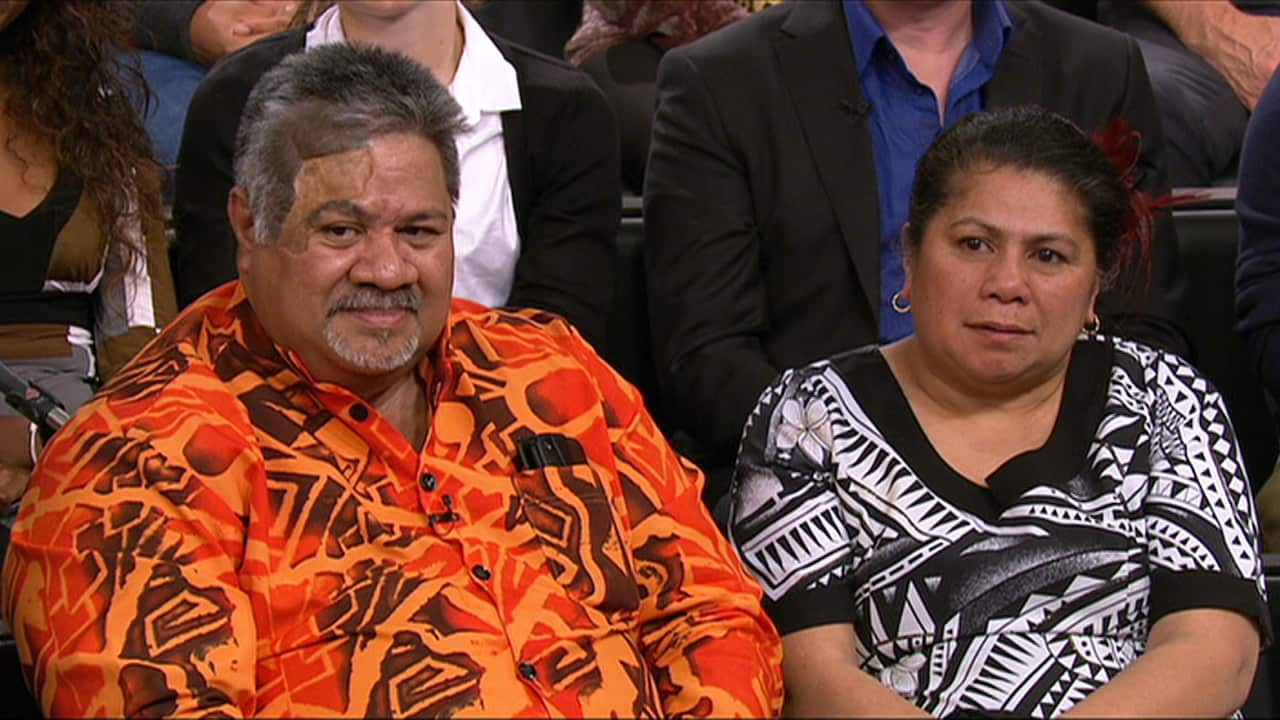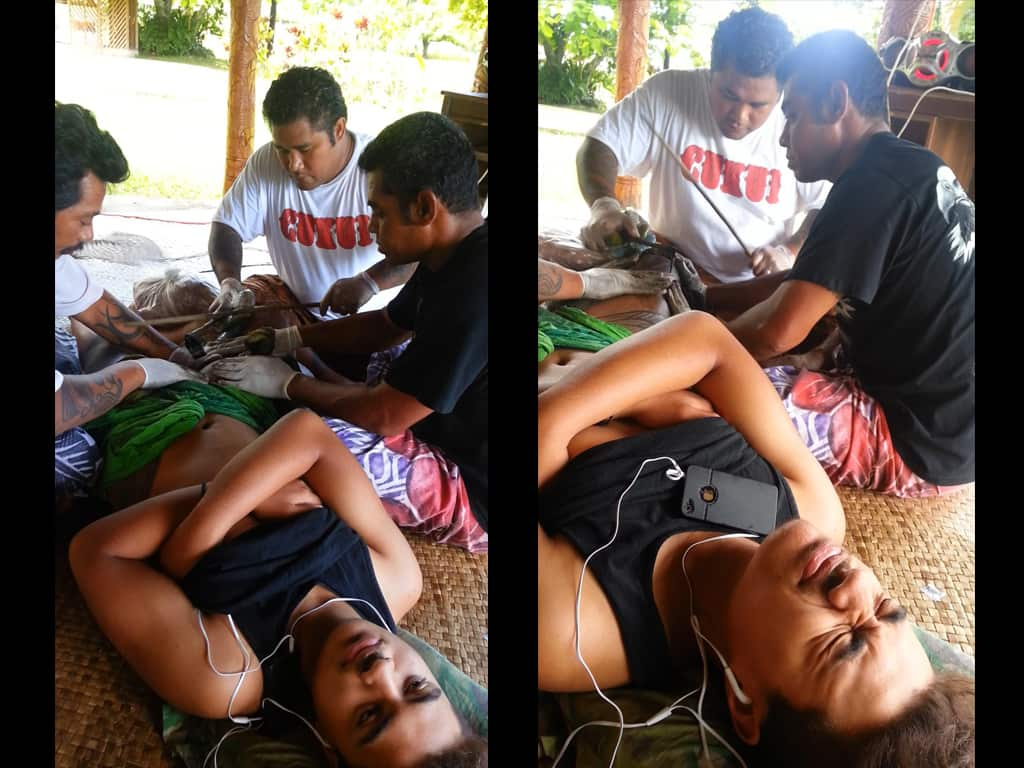When Koro Sofara was 16, he decided was ready to go through a specific ritual unique to his Samoan culture.
His father and grandfathers had both got it done, and Koro had seen his older brother Leulumoega undergo the procedure at 18.
Leulumoega described the experience as "hell" as it was "the worst pain you could ever possibly go through".
Despite hearing how excruciating it would be, Koro was determined: "I just saw how my brother started carrying himself, and he started earning more respect in our community. I felt like, oh, I want that same respect that he had."
But there was just one obstacle - he had to get his parent's blessing.

The pe'a is an intricate and sacred tattoo symbolising a person's transition from boy to man. It wraps around the body from middle of one's torso, covering the back to the waist and finishes on the knees.
Koro's father, Ape, said his role as an educator and mentor is "very important" in determining whether his son was ready.
An individual with a pe'a commands respect in the community and people view you as having an understanding of the Samoan culture, country and language. Your family needs to be sure you are the type of person who deserves a pe'a, and will uphold your kinfolk's reputation once you get it.
"I think 90% of the young boys don't have it here and it's not something that many parents encourage their kids. I didn't even encourage my sons; they asked me," Ape explains.
Ape, who was 22 when he got his, said it was vital his sons understood the cultural significance and reasoning behind it, stressing that the pe'a should never be done for fashion or to brag about.
"It's not something like showing off or I'm strong, no, it's our identity," Ape said. "Having a tattoo it's one thing; understanding it and how they honour the forefathers and our sisters is one thing."
"They have to actually know how to carry themselves as young men. They have to be humble ... The reason why you have your tattoo is to serve the community, serve the elders and respect everyone."
The Melbourne teenager eventually proved he was worthy in his father's eyes, and flew to Samoa with his family in tow as support.

The tattooing is done the traditional way with a metal chisel and nail on the end, tapping the black ink into the skin. There was also no painkillers involved.
Koro said agony was nothing like he'd imagined. "After the first tap I thought oh, am I going to finish this? Am I going to stop now?"
"But what really kept me going was seeing my dad there, seeing my brother there, and just kept on thinking about my grandfathers and forefathers for that just kept me going to strive to finish my journey of getting the pe'a," the high schooler said.
Blood loss is not uncommon, with the pe'a requiring constant care to ensure it doesn't get infected. People have to shower a few times a day and need to keep changing their clothes and sheets.
The tattoo cost $2300 and took eight days, with each session lasting between three to seven hours.
At the end, an egg is cracked over the body which means all of the spirits and bad blood goes away. This symbolises the end of boyhood, and the beginning of life as a man. Koro said he couldn't walk for 3 or 4 days afterwards.
Returning to Australia, Koro said he has truly felt the transformation the pe'a has afforded him. He has seen the men at his congregation and community folk show him more respect.
"I just felt more of a man and like more matured, just like in my family and in my community or even in my church," the teenager said.
His mother Maria, who initially thought Koro was too young, now approves.
"I think it's a good idea. But like my husband said, it's not a toy that. You go through the pain, that's fine, but you'll have to, you know it's like earning the respect. It's not only having the tattoo, it's carrying yourself."
Will Koro expect his son to go through with the procedure when he comes of age?
"I wouldn't put pressure on them," he said. "If they wanted it, and they really had the passion for our culture and to serve our community, then I would let them get the tattoo."
Koro Sofara is a guest on Insight's Boys To Men program which airs Tuesday, October 27 at 8:30pm on SBS.
Host Jenny Brockie speaks to a range of males on what helped shape their identity as a man, and whether rituals are needed to successfully transition into manhood.

